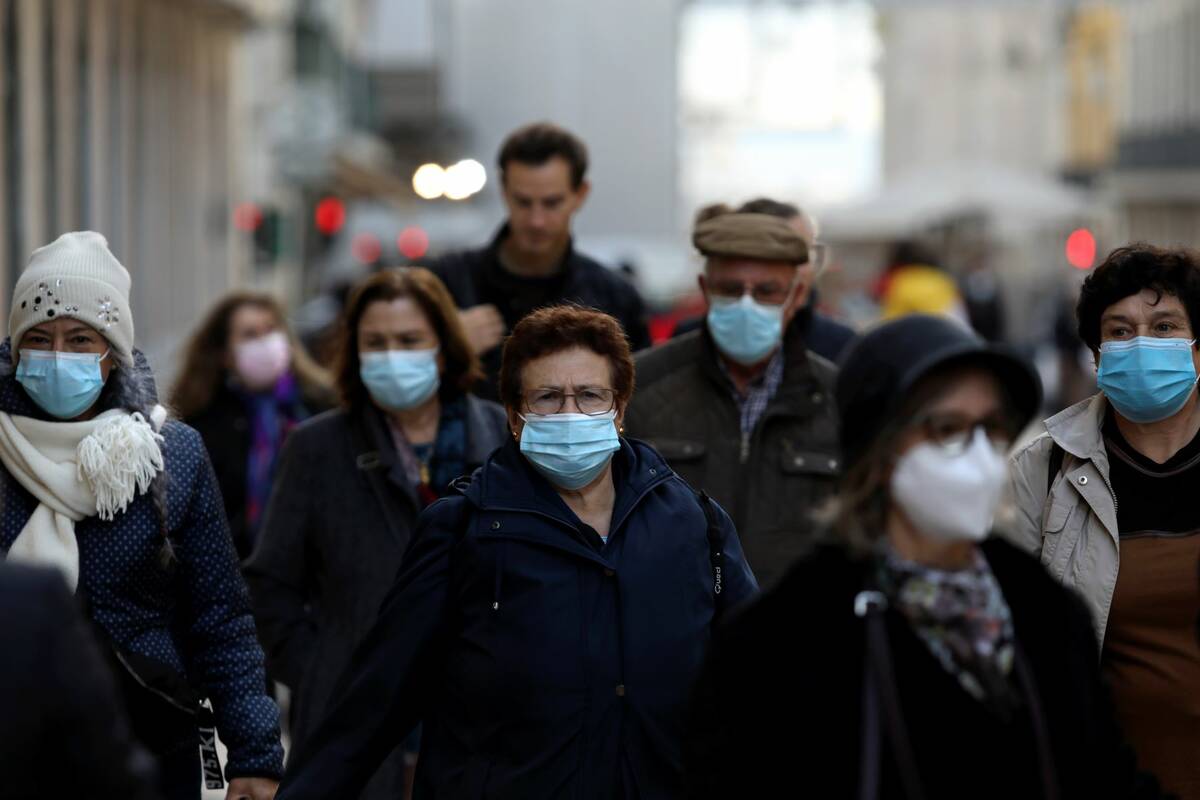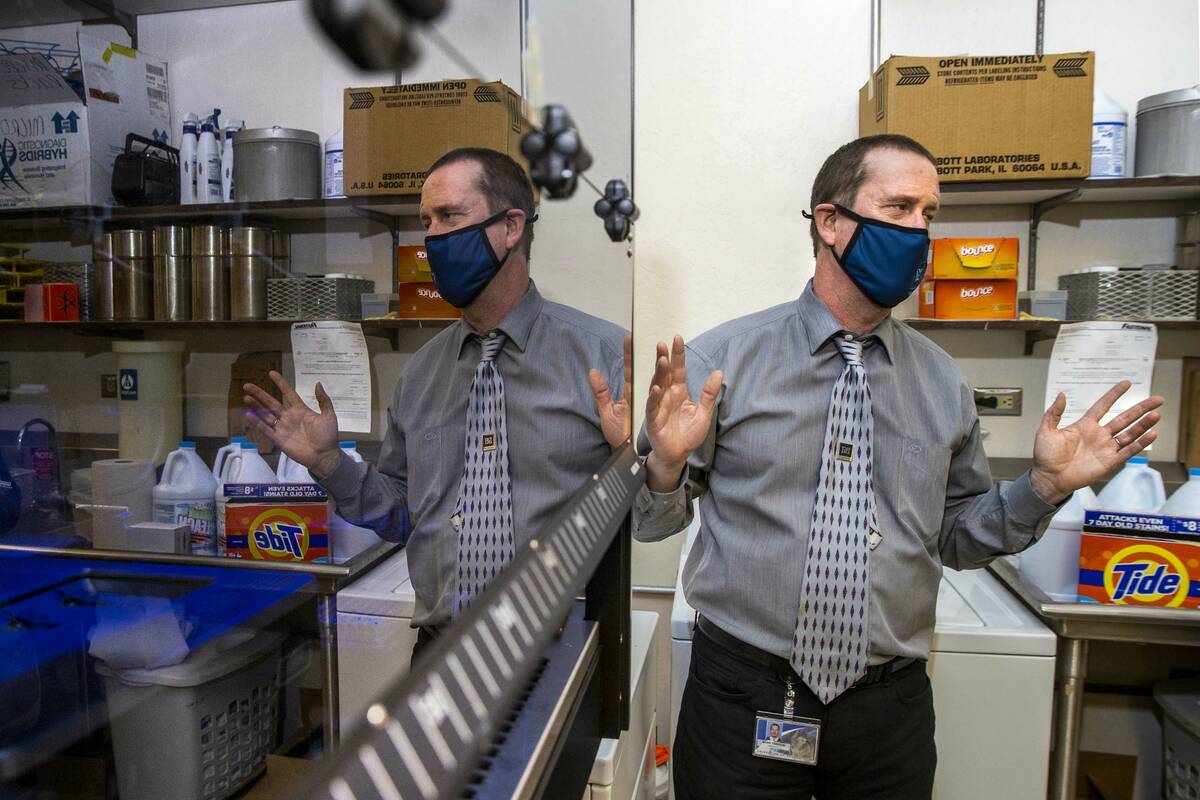Nevada ramps up monitoring for omicron coronavirus variant
Nevada public health authorities are stepping up efforts to detect the omicron variant, a newly identified strain of the coronavirus with mutations that suggest it may be more dangerous than the delta variant.
“The genetic blueprint of omicron concerns me more than any previous genetic blueprint of SARS-CoV-2 that I’ve ever seen,” Mark Pandori, director of the Nevada State Public Health Laboratory at the UNR School of Medicine in Reno, said on Monday.
The World Health Organization last week classified omicron, which was first identified in South Africa, as a “variant of concern,” a category that includes the delta variant that is dominant across the globe. The U.S. and other countries have now banned travel from countries in southern Africa where omicron is rapidly spreading.
The variant has at least 35 mutations on its spike protein, the part of the virus targeted by COVID-19 vaccines, explained Pandori, whose lab genetically analyzes a sampling of COVID-19 test results from across the state each day.
Among these mutations are some associated with greater transmissibility, potentially more serious infections and an increased ability to evade the body’s immune- system response. However, it’s unknown at this point what effect the mutations will have in combination with one another.
A particular mutation alone might result in greater transmissibility, for example, but “when they’re in a context with other mutations, they may not have that functionality,” Pandori said.
The worst case is that these mutations combine “to give the virus increased transmissibility, increased viral loads and decreased vaccine efficacy,” he said. “If that’s the case, then we’re going to see the situation where the virus can spread in the entire population with some capability. … The best case would be that those mutations don’t turn it into a monster that combines and makes it more (dangerous) than any of the other variants.”
He and other public health officials stressed, however, that there isn’t data yet to enable scientists to know how the variant will perform when it comes to actual infections.
“There are a number of mutations, which could mean that it can cause new problems for us — either the vaccine not responding as well, or being more difficult to treat, or having more serious disease,” said Brian Labus, an assistant professor of epidemiology and biostatistics in the UNLV School of Public Health. “Right now, we don’t know if any of those things is true. They are theoretical possibilities, but we’re still trying to understand what these mutations mean.”
Also of concern, Pandori said, is that the virus made what he called a “leap,” rather than a gradual progression, by changing so much, so quickly. One way this can occur is when an individual has multiple strains at the same time, he said. Another is when a virus replicates unchecked over a period of time in a person with a compromised immune system.
Travel ban buys time
Pandori and Labus agreed that the U.S. travel ban buys time to better understand the variant and protect against it, especially since it was imposed early, before cases have been identified in the U.S.
It provides time to “ensure that all of the existing public health testing infrastructure and genomic infrastructure is in place to detect this, but also time to learn what are the medical consequences of this virus, if any at all,” Pandori said.
On Monday, the state lab did a “deep dive” on COVID-19 test samples from the past year, updating its software and adjusting its algorithms to confirm that it had not come across any cases of omicron in the state. The Southern Nevada Health District, which also conducts the genetic analysis of a sampling of cases, also said that it has not identified any omicron cases.
The district declined a request for an interview but provided a statement encouraging people to protect themselves against the virus using “proven prevention strategies.”
These include “wearing masks in public indoor settings, physically distancing from people who don’t live with you, washing your hands frequently, getting tested if you feel sick or have been in contact with a confirmed or suspected case, and most importantly — getting fully vaccinated or a COVID-19 booster,” the statement said.
Contact Mary Hynes at mhynes@reviewjournal.com or 702-383-0336. Follow @MaryHynes1 on Twitter.


















